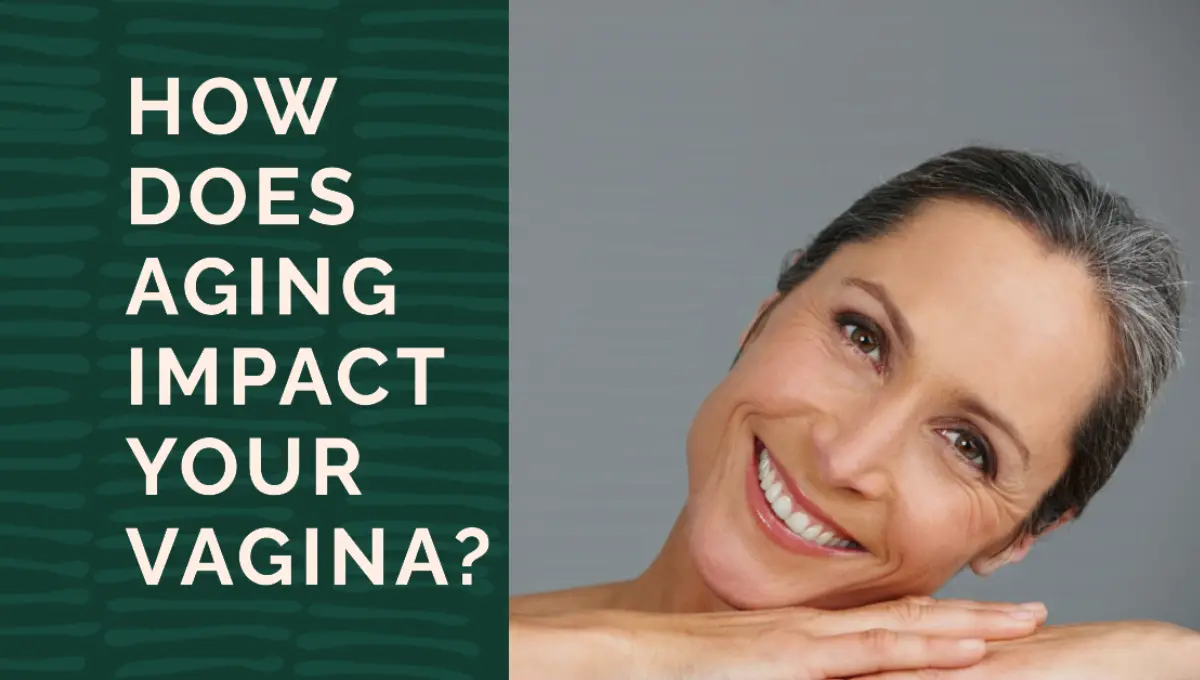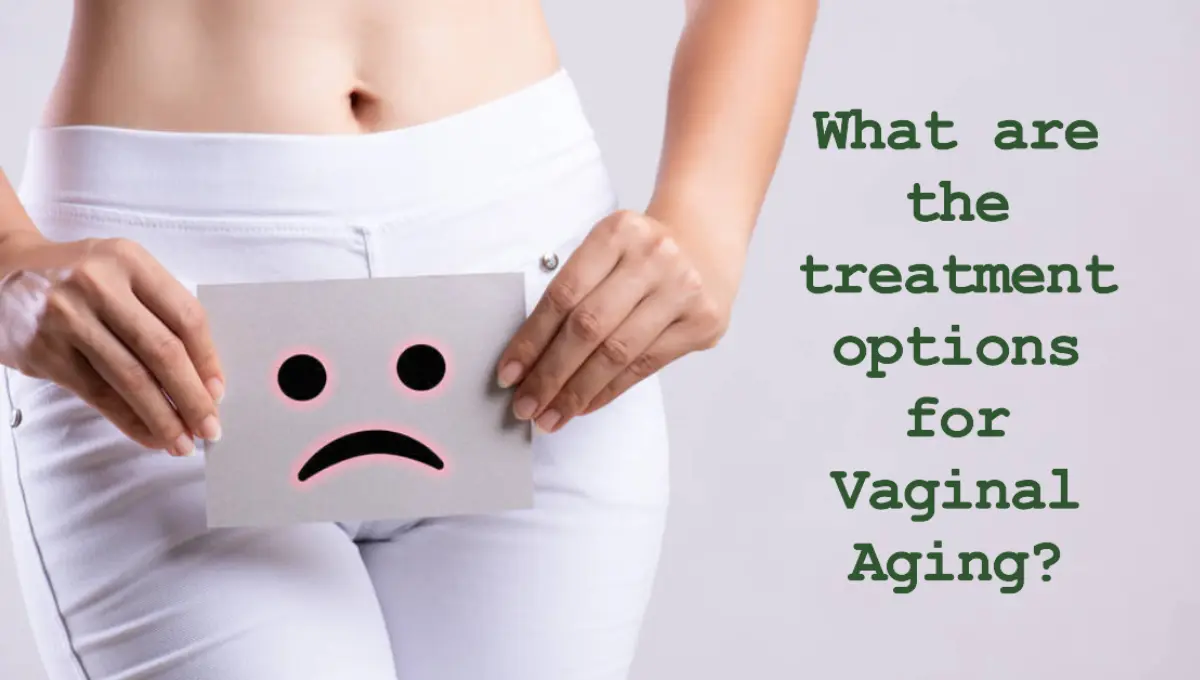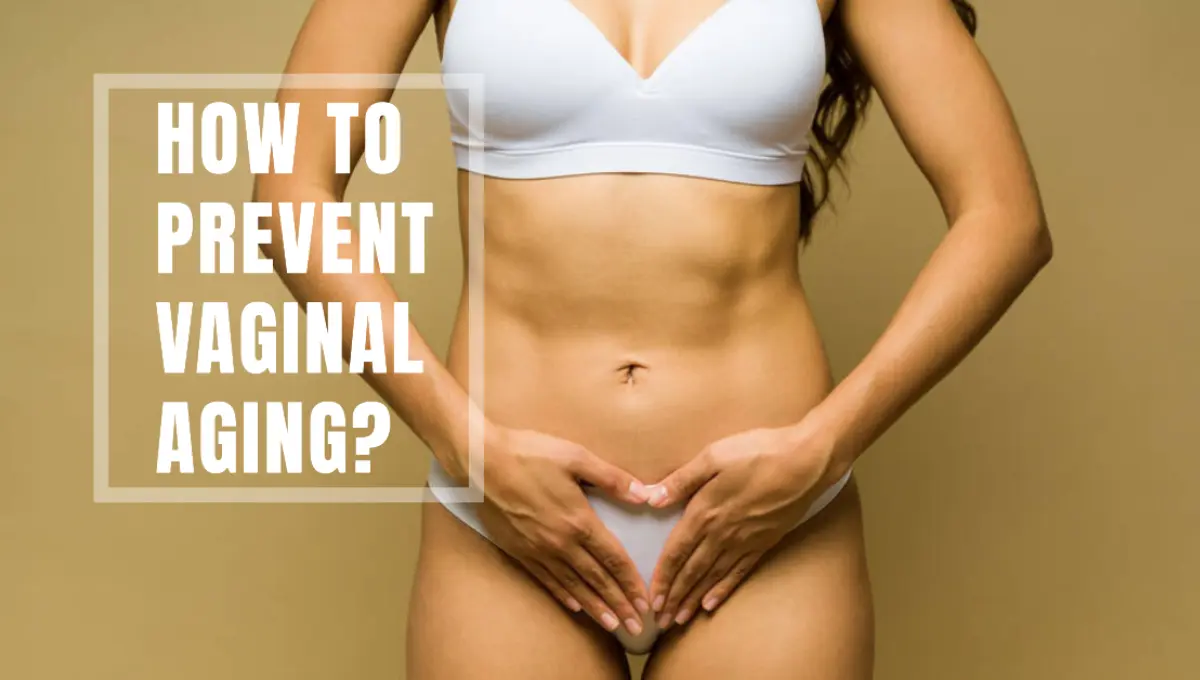
Hey there, curious about – How Does Aging Impact Your Vagina?. So we all know that as we grow up, our bodies go through some pretty cool changes, like getting taller, maybe having a few more birthdays under our belts, and even discovering a wrinkle or two. But guess what? There’s a secret side to aging that’s totally fascinating and a bit surprising!
Hold onto your hats, because apart from those wrinkles and gray hair, there’s another part of our bodies that’s like a hidden treasure – the vagina and vulva. Yep, you heard it right! These are super special places that have their very own adventure as we get older. And guess who’s behind all this magic? Our hormones! They’re like the wizards of change in our bodies.
Now, picture this: your body is like a magical kingdom, and hormones are like the messengers sending secret messages to different parts. These messages tell your vagina and vulva how to feel and work. So, as we sail through the sea of time, these messages change the way our special parts behave, and it’s a journey full of surprises!
So, this article explores the transformations that occur in the vagina and vulva with age, the symptoms that may arise, the causes behind these changes, diagnosis methods, available treatments, prevention strategies, and the far-reaching effects on sexual and mental health.!
Related: How Do Celebrities Lose Weight Fast After Pregnancy?
What is Vaginal Aging?
Vaginal aging is a natural process that occurs as women get older, and it can lead to a condition called vaginal atrophy or genitourinary syndrome of menopause (GSM).
Related: 12 Tips to Tighten Your Vagina
How Does Aging Impact Your Vagina and Vulva?

The majority of women go through four distinct phases of hormonal transitions in their lives: adolescence, menstruation, pregnancy, and menopause. While certain health conditions can lead to exceptions, these stages represent the primary periods of hormonal changes in females. Each of these transformations has unique effects on the vaginal area.
Changes in the Vagina and Vulva during the 20s and 30s
During this time frame, the body produces ample amounts of estrogen and progesterone. As a result, alterations in the vaginal area involve an increase in vaginal discharge due to sufficient levels of estrogen present in the body.
Moreover, many women experience their first pregnancy between their late 20s and 30s, which impacts the appearance and sensation of their vagina. Fluctuations in estrogen levels after childbirth and during breastfeeding can result in vaginal dryness. Wondering about the feeling of vaginal dryness? It leads to the vagina feeling rough, itchy, and irritated, often causing discomfort during sexual intercourse. Alternatively, women using hormonal birth control methods might also face vaginal dryness.
Additionally, women who give birth vaginally might encounter vaginal laxity. This usually occurs after childbirth due to the stretching and weakening of the pelvic floor muscles. These muscles offer support to the abdominal organs, including the rectum, and serve as a mechanism for controlling the urethral, anal, and vaginal openings in females. During vaginal delivery, the pelvic floor muscles can stretch, tear, or expand within the vaginal canal to make space for the baby’s head to pass through. This leads to a somewhat looser, less toned, or more spacious vagina, commonly known as vaginal laxity.
Changes in the Vagina and Vulva during the 40s and 50s
Estrogen levels start to decrease between the ages of 40 and 50, marking the beginning of a phase called perimenopause, which precedes menopause. Menopause typically begins around the age of 51. The decline in estrogen results in a reduction of vaginal collagen and natural lubrication, leading to vaginal dryness, thinning of the vaginal walls, and discomfort or pain during sexual activity. The changes in the vaginal region during menopause also cause the vagina and clitoris to shrink, the labia to become thinner and less firm, and the pelvic floor muscles to weaken.
It’s important to note that regardless of age, a higher vaginal pH can increase the risk of infections, causing the vaginal biome to become more acidic. Poor hygiene practices can also contribute to conditions like bacterial vaginosis (BV).
Related: Vaginal Discharge During Pregnancy
Wht are the symptoms of Vaginal Aging?
The symptoms of vaginal aging and GSM include:
- Vaginal dryness: This is a common symptom of vaginal aging and GSM.
- Burning and itching: Women may experience burning and itching in the vaginal area due to thinning and inflammation of the vaginal walls.
- Pain during sex: Vaginal dryness and thinning of the vaginal walls can cause pain during sexual intercourse.
- Unusual vaginal discharge: Women may experience unusual vaginal discharge that is usually yellow in color.
- Spotting or bleeding: Women may experience spotting or bleeding, especially during sex.
- Urinary symptoms: Vaginal aging and GSM can also cause urinary symptoms such as burning with urination, urgency with urination, and frequent urination.
Related: Tips to Prepare Your Body for Pregnancy
What are the causes of Vaginal Aging?
The following are some of the causes of vaginal aging:
- Estrogen Deficiencies: The loss of estrogen around the time of menopause makes the once-stretchy tissues of the vagina thinner and less elastic. This can cause the vaginal walls to become thinner, dryer, less elastic, and possibly irritated, which can make sex painful.
- Changes in the Microbiome: The vagina is home to lots of bacteria, some good and some bad. The loss of estrogen around menopause changes the climate down there, leaving more bad bacteria and fewer good ones. This can increase the risk of vaginal infections.
- Genetic Changes: Changes at the genetic level associated with DNA damage and repair can also contribute to vaginal aging.
- Lack of Use: If you don’t have sex often enough, your vagina can get shorter and narrower, which can make sex painful. Maintaining a healthy sex life (with a partner or a vibrator) will keep your vagina loose and limber.
- Menopause: Women and people assigned female at birth (AFAB) in menopause are the most likely to experience vaginal atrophy because their body naturally produces less estrogen. Without estrogen, the lining of the vagina can become thinner and less stretchy, and the vaginal canal can also narrow and shorten.
- Cancer Treatment: Vaginal atrophy can occur in younger women and people AFAB when their estrogen levels decrease due to cancer treatment or having their ovaries removed.
What are the diagnoses of Vaginal Aging?
Accurate diagnosis is crucial for effective management of vaginal aging. Physicians utilize various methods to assess the condition:
- Physical exam: A comprehensive examination of the vulva and vagina can reveal visible changes and discomfort.
- Pelvic exam: This examination assesses the health of the pelvic organs and the condition of the vaginal walls.
- Vaginal pH test: Monitoring pH levels helps identify imbalances that may contribute to discomfort or infections.
- Blood tests: Hormone levels, especially estrogen, can be measured to understand their impact on vaginal health.
What are the treatment options for Vaginal Aging?

Fortunately, numerous treatment options exist to alleviate the symptoms of vaginal aging:
- Hormone therapy: Estrogen therapy, available as creams, tablets, or rings, can replenish declining hormone levels and restore vaginal health.
- Vaginal moisturizers and lubricants: These products provide essential hydration and lubrication, alleviating dryness and discomfort.
- Vaginal dilators: Gradually stretching the vaginal walls with dilators can help maintain elasticity and ease discomfort.
- Alternative therapies: Some women explore alternative options like herbal supplements or acupuncture to manage vaginal aging symptoms.
What are over-the-counter products that can help with vaginal Aging?
Yes, there are over-the-counter products that can help with vaginal atrophy. The following are some examples:
- Vaginal Moisturizers: Over-the-counter vaginal moisturizers such as K-Y Liquibeads, Replens, and Sliquid can help restore moisture to the vaginal area. These moisturizers can be applied every few days, and their effects generally last longer than those of lubricants.
- Vaginal Lubricants: Over-the-counter vaginal lubricants such as Astroglide, Wet, and K-Y Jelly can help ease vaginal dryness and make sex more comfortable.
- Natural Remedies: Some natural remedies such as jojoba oil, coconut oil, aloe vera, and vitamin E gel can help soothe and lubricate the genital area.
- Gina Vaginal Estrogen: Gina is a brand of vaginal tablets that contain 10 micrograms of estradiol, used to treat the common menopause symptom of vaginal atrophy. It is available over-the-counter in the UK.
How to prevent Vaginal Aging?

While complete prevention is not possible, several strategies can mitigate the effects of vaginal aging:
- Maintaining a healthy lifestyle: Adequate hydration, balanced nutrition, and regular exercise contribute to overall well-being, including vaginal health.
- Regular sexual activity: Engaging in sexual activity can promote blood flow to the pelvic region and maintain vaginal elasticity.
- Pelvic floor exercises: Strengthening the pelvic floor muscles through Kegel exercises helps prevent urinary incontinence and maintains muscle tone.
- Avoiding irritants: Refraining from using harsh soaps, douches, or scented products in the genital area can prevent irritation.
What is the impact of Vaginal Aging on Sexual Health?
Vaginal aging can significantly impact sexual health and intimacy:
- Decreased sexual desire: Physical discomfort and psychological factors can contribute to a decline in sexual desire.
- Painful intercourse: Thinning, dryness, and decreased lubrication can lead to painful or uncomfortable sexual experiences.
- Relationship issues: Struggles with intimacy can strain relationships and lead to emotional distress.
What is the impact of Vaginal Aging on Mental Health?
Vaginal aging’s effects extend beyond the physical realm and can influence mental well-being:
- Anxiety and depression: Physical discomfort and changes in sexual experiences can contribute to increased feelings of anxiety and depression.
- Negative body image: Visible changes in the genital area may lead to negative body image perceptions.
- Social isolation: Discomfort and anxiety related to sexual experiences can lead to social withdrawal and isolation.
Conclusion
In conclusion, vaginal aging is an important topic that deserves open discussion and medical attention. The natural changes that occur in the vagina and vulva as a result of aging can lead to various discomforts and challenges. However, with proper diagnosis, treatment, and prevention strategies, women can navigate these changes and maintain their overall health and well-being. Seeking medical advice for symptoms of vaginal aging is essential, as healthcare professionals can provide personalized guidance and treatment options to ensure that women continue to enjoy a fulfilling and comfortable life throughout the aging process.
Frequently Asked Questions (FAQs)
What is vaginal atrophy?
What are the symptoms of vaginal atrophy?
How can I prevent vaginal atrophy?
Regular sexual activity or vaginal stimulation, with or without a partner, helps maintain healthy vaginal tissues in women after menopause. Avoiding smoking or stopping smoking can also help prevent some of the symptoms associated with vaginal atrophy or GSM.






